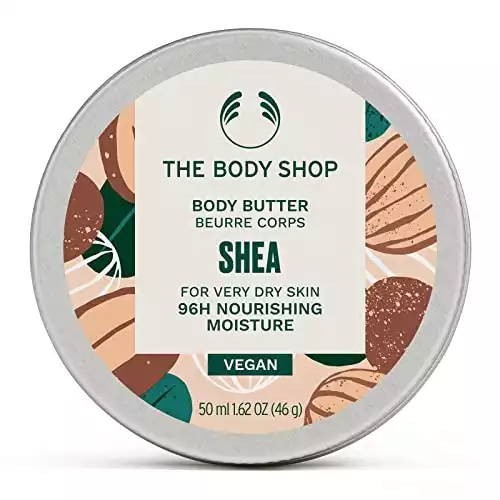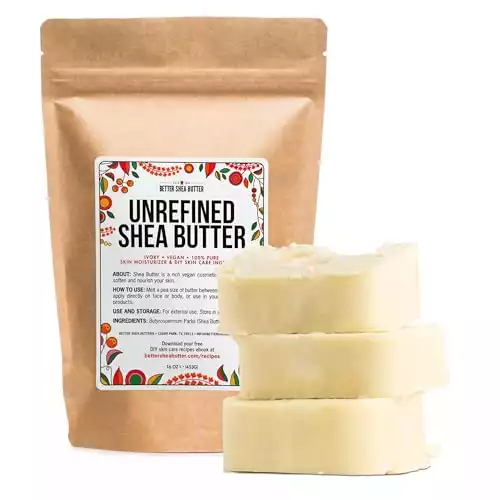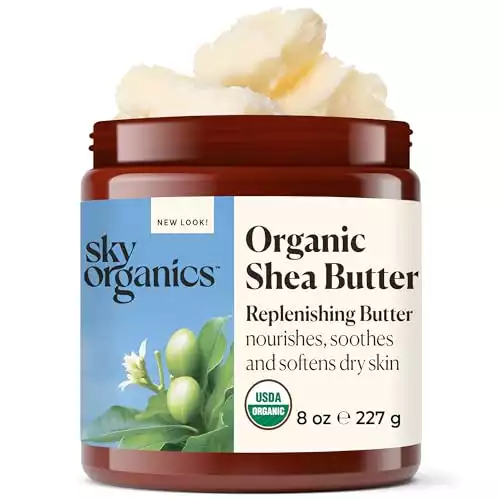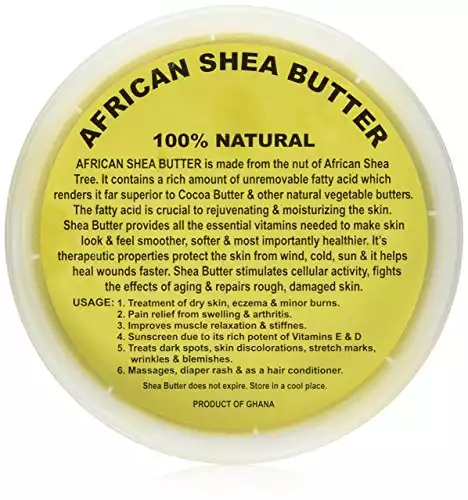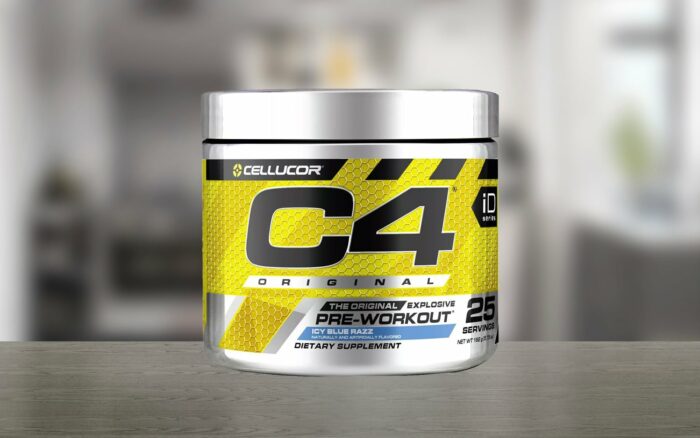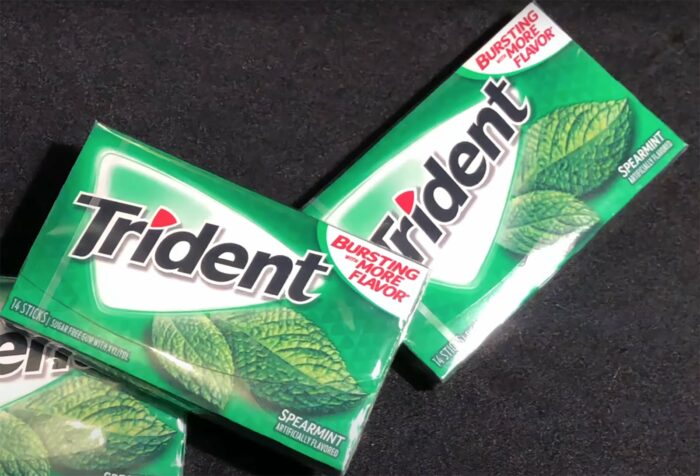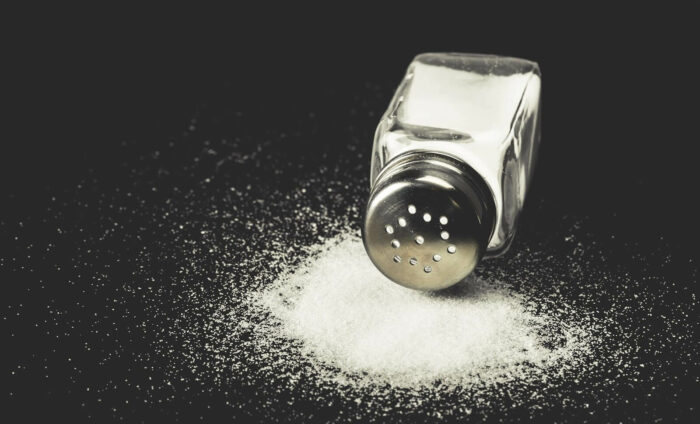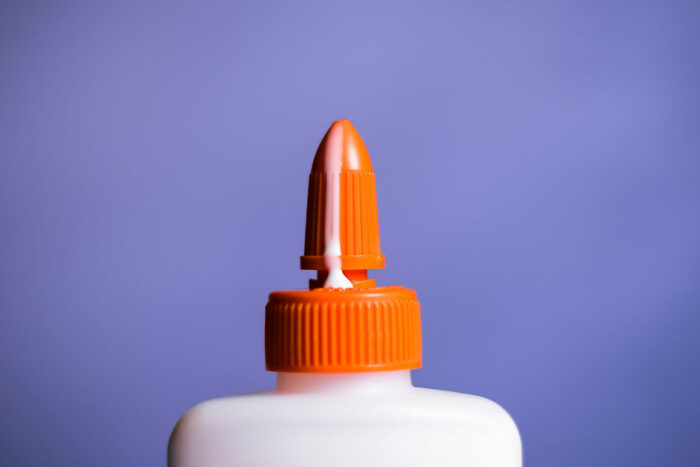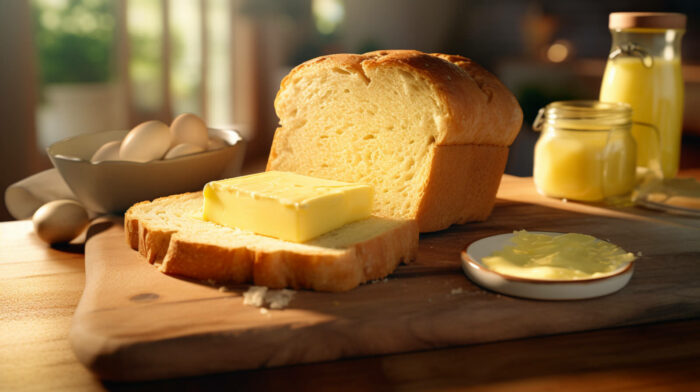Is Shea Butter Vegan?
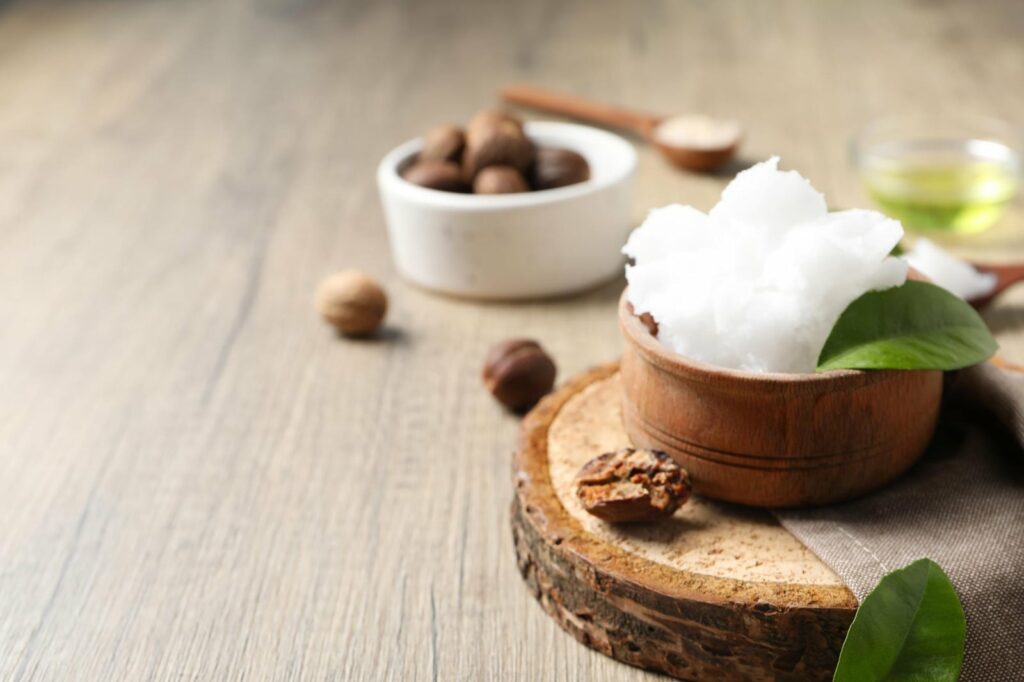
If you’re wondering whether shea butter is vegan, it’s a common question that often arises due to misunderstanding. Understanding the process of how this natural ingredient is sourced and its alignment with vegan principles can shed light on this topic. Let’s explore the nuances of shea butter and its relevance to conscious consumers like yourself.
Shea butter is derived from the nut of the shea tree, which is native to Africa. The process involves harvesting the nuts, drying, crushing, roasting, and then extracting the rich butter. This natural butter is widely used in skincare and cosmetic products for its moisturizing and nourishing properties.
From a vegan perspective, shea butter is considered vegan-friendly. Unlike animal-derived ingredients like beeswax or lanolin, shea butter is plant-based, making it suitable for vegans and vegetarians. It doesn’t involve any exploitation or harm to animals in its production process.
Moreover, shea butter is known for its sustainability and support of local communities in Africa. The production of shea butter provides employment opportunities for women in rural areas, contributing to their economic empowerment.
When choosing skincare products, opting for shea butter can align with your vegan values while benefiting from its natural goodness. So, rest assured that shea butter is a vegan-friendly option that you can incorporate into your skincare routine with confidence.
Is Shea Butter Vegan?
Yes, shea butter is 100% vegan. Shea butter is a plant-based product derived from the nuts of the shea tree, making it inherently vegan. This natural ingredient is dairy-free and cruelty-free, suitable for use in a variety of vegan products, including those for hair care.
Understanding the different grades and compositions of shea butter can help ensure you’re using a vegan-friendly option in your beauty routines.
Is Shea Butter Ok For Vegans?
Shea Butter is a vegan-friendly product that’s widely trusted and used in the cosmetics industry. It’s derived from plants and is processed in a way that aligns with vegan standards, making it a popular choice for skincare products.
Many vegans choose Shea Butter for its moisturizing properties and ethical sourcing. Its plant-based origin makes it a great option for those looking for vegan-friendly skincare options.
Does Shea Butter Contain Dairy?
Shea butter is a plant-based product that’s derived from the nuts of the shea tree, which is native to Africa. This natural butter is dairy-free and packed with antioxidants, making it a popular choice for skincare. Its moisturizing properties make it a valuable ingredient in various skincare products, offering nourishment for the skin.
Since shea butter comes from a botanical source, it’s suitable for those following vegan and dairy-free lifestyles. Its rich texture and hydrating benefits have made it a staple in natural skincare routines. Whether used on its own or as an ingredient in lotions and creams, shea butter is known for its ability to deeply moisturize the skin without clogging pores.
Is Shea Butter Vegan For Hair?
Shea butter is a wonderful vegan option for hair care, thanks to its nourishing properties and rich nutrients. Here are some key benefits of using shea butter for your hair:
- Shea butter deeply hydrates and nourishes your hair, helping to combat dryness and improve overall hair health.
- It can enhance hair elasticity, making your strands more resilient and less prone to breakage.
- Shea butter is known to reduce frizz, giving your hair a smoother and more manageable appearance.
- Regular use of shea butter can promote hair growth by providing essential vitamins and nutrients to your scalp.
- If you’re looking for vegan hair care products, there are certified vegan shea butter options available in the market.
Is All Shea Butter Vegan
Shea butter is generally considered vegan as it’s derived from the nuts of the shea tree through a purely plant-based process. Vegan consumers often choose shea butter for its natural properties and benefits in various products.
However, it’s important to note that not all shea butter is guaranteed to be vegan. The purity of shea butter can vary depending on its grade, which ranges from raw to highly refined. When using shea butter in cosmetics, it’s essential to check the grade to ensure it aligns with vegan standards.
Familiarizing oneself with the grading system can help in selecting vegan-friendly shea butter for cosmetic purposes.
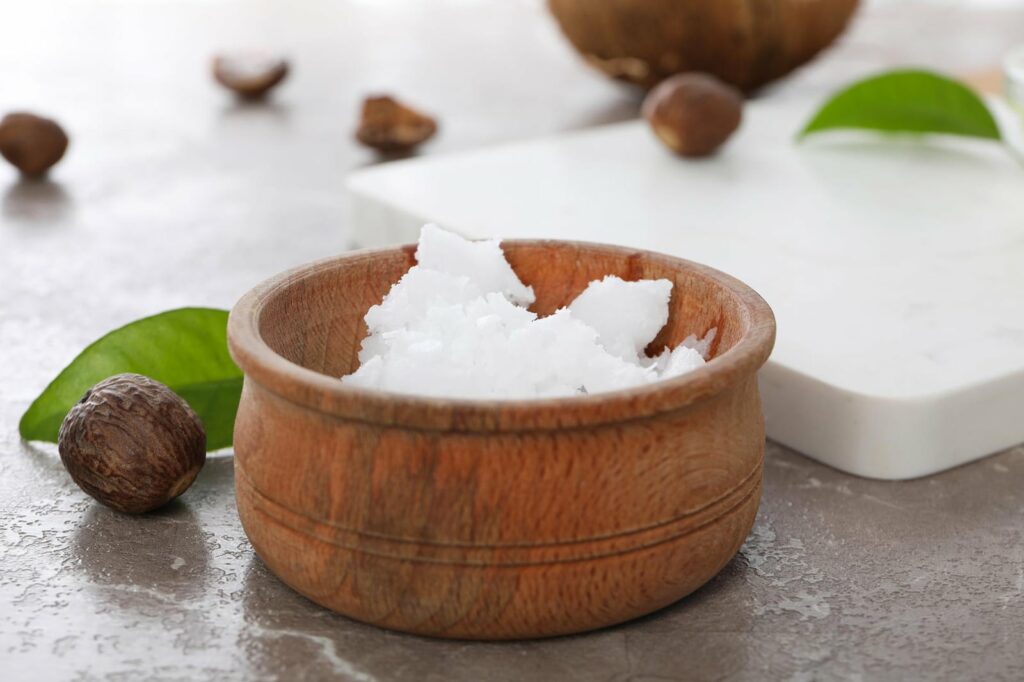
What Is Shea Butter?
Shea butter is a natural substance derived from the nuts of the African shea tree. It contains high levels of fatty acids like oleic and stearic acids, as well as vitamin E, making it a popular ingredient in cosmetic products.
Known for its moisturizing and antioxidant properties, shea butter offers a wide range of benefits for skin and hair care. It’s widely used in the beauty industry due to its nourishing and protective qualities.
Shea butter is a versatile and effective option for those looking to enhance their skincare routine with a natural and beneficial ingredient.
Shea Butter Ingredients
Shea butter is a natural product derived from the nuts of the African shea tree, scientifically known as Vitellaria paradoxa. It contains a blend of essential fatty acids like palmitic acid, stearic acid, oleic, linoleic acid, and arachidic acids, which contribute to its rich lipid profile. These fatty acids play a key role in nourishing and moisturizing the skin, making shea butter a popular choice in skincare and beauty routines.
Being plant-based, shea butter aligns with vegan principles, making it a preferred ingredient in vegan skincare products. Its natural composition makes it gentle and suitable for various skin types, including sensitive skin. Shea butter is known for its hydrating, soothing, and antioxidant properties, which help in improving skin elasticity and reducing inflammation.
What Makes Shea Butter Vegan?
When determining if shea butter is vegan, it’s important to look at how it’s processed from plants and ensure there are no animal-derived ingredients involved.
Shea butter is considered vegan because it’s derived entirely from plants.
It is a popular ingredient in many vegan cosmetics due to its natural properties and benefits for skin and hair.
The quality of shea butter can vary depending on the grade, which ranges from unrefined to refined. It’s essential to consider these grades as they can affect the color and nutrient levels of the shea butter.
Is Shea Moisture Vegan?
When considering whether Shea Moisture products are vegan, it’s important to look at the ingredients used in their formulations.
Shea Moisture isn’t classified as a vegan brand because some of their products contain animal-derived ingredients like honey and beeswax.
While they’re cruelty-free and feature raw shea butter, the inclusion of non-plant-based components makes them unsuitable for individuals looking for fully plant-based options.
Is Cantu Shea Butter Vegan?
Cantu Shea Butter products are suitable for vegans as they’re formulated with vegan-friendly ingredients. Shea butter, a key component in Cantu products, is inherently vegan. The brand is committed to meeting vegan standards in their formulations.
Cantu also places emphasis on responsibly sourcing shea butter, ensuring sustainability and quality. Additionally, Cantu products honor the cultural significance of shea butter, showcasing a deep respect for its origins and heritage.
Is Pixi Shea Butter Lip Balm Vegan
Pixi Shea Butter Lip Balm is a vegan product that harnesses the moisturizing properties of shea butter, derived from the nuts of the shea tree. Shea butter is well-known for its nourishing benefits, making it a popular choice for lip care products.
In the case of Pixi’s lip balm, the shea butter used is plant-based, making it suitable for vegans. By including shea butter in their formula, Pixi provides a cruelty-free option for individuals looking to hydrate and protect their lips while adhering to vegan principles.
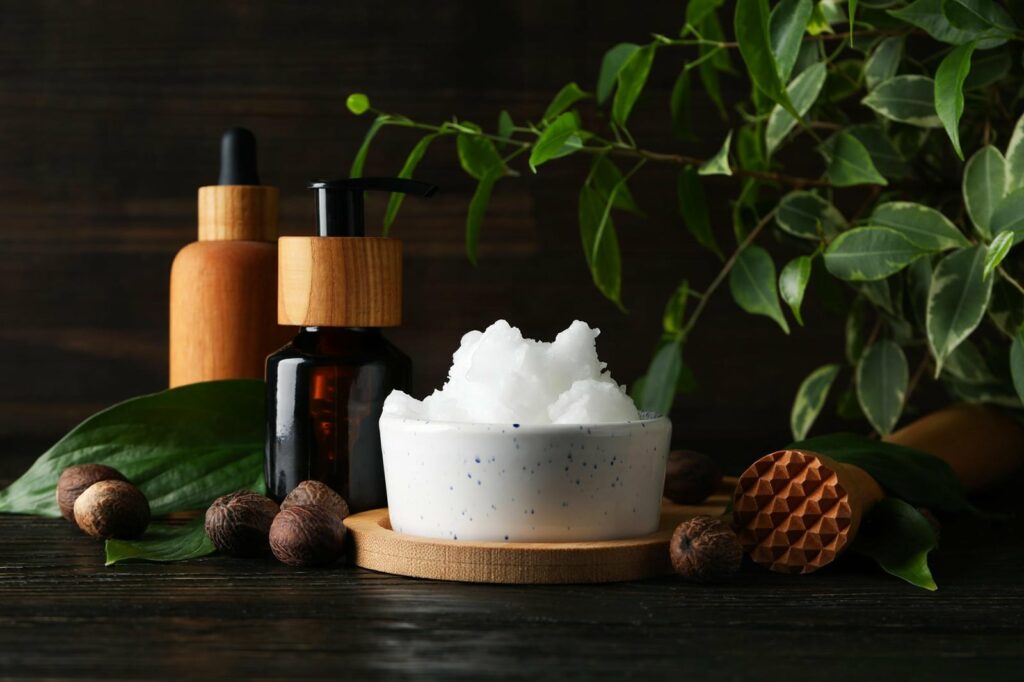
Is The Body Shop Shea Body Butter Vegan?
Yes, The Body Shop Shea Body Butter is indeed vegan. The Body Shop is known for offering a variety of vegan products, and the Shea Body Butter is part of their vegan range. This body butter doesn’t contain any animal-derived ingredients, making it suitable for those following a vegan lifestyle.
The Body Shop takes pride in ensuring that their products are cruelty-free and meet the standards for vegan certification. So you can enjoy the moisturizing benefits of the Shea Body Butter knowing that it aligns with your ethical choices.
Is EOS Shea Butter Hand Cream Vegan?
Transitioning from discussing The Body Shop Shea Body Butter, you might be interested in knowing about the vegan status of EOS Shea Butter Hand Cream. EOS Shea Butter Hand Cream is indeed vegan, as it contains 100% sustainably sourced shea butter.
What’s noteworthy about this product is its commitment to sustainability, with all packaging being recyclable as mixed plastic #7. Additionally, EOS actively participates in a take-back program with Terracycle, showcasing their dedication to eco-friendly practices.
Is Organic Shea Butter Vegan?
When considering whether organic shea butter is vegan, it’s important to look at how it’s produced and if any non-vegan additives are included. Organic shea butter itself is vegan-friendly, as it’s derived from the nuts of the shea tree. Opting for certified vegan options ensures that the shea butter aligns with vegan principles and doesn’t contain any animal-derived ingredients like beeswax.
Choosing ethically sourced organic shea butter not only supports vegan values but also contributes to the growing market for vegan products. By being mindful of the production process and ingredients, you can confidently incorporate organic shea butter into your vegan lifestyle.
Shea Butter Classification And Grades
Understanding the classification and grading of shea butter is crucial. This follows the system proposed by the United States Agency for International Development and other reputable organizations. Shea butter is categorized into five grades:
- Grade A (raw or unrefined)
- Grade B (refined)
- Grade C (highly refined)
- Grade D (lowest uncontaminated grade)
- Grade E (with contaminants)
It’s noteworthy that the refining process can alter the vitamin content, potentially leading to refined grades losing up to 95% of their vitamin content. This distinction highlights the importance of choosing the right grade based on the intended use and desired benefits of shea butter.
Is Shea Butter Soap Vegan?
Shea butter soap, made from the nuts of the shea tree, is largely considered vegan among various brands. This type of soap is plant-based, with many manufacturers opting to exclude animal-derived ingredients in their products.
It’s common to find vegan certification on shea butter soap packaging, indicating the absence of animal products in its formulation. Overall, shea butter soap is a popular choice for those looking for a cruelty-free option in their skincare routine.
Is Dove Shea Butter Soap Vegan?
When it comes to the vegan status of shea butter soap, it’s essential to consider whether Dove Shea Butter Soap meets vegan criteria.
The Dove Shea Butter Beauty Bar is a gentle cleanser enriched with shea butter and other nourishing ingredients, catering to various skin types.
This moisturizing bar soap is cruelty-free, devoid of parabens and sulfates, ensuring a pampering experience for your skin.
With its creamy lather, it provides a luxurious skincare routine that many find appealing.
Shea Butter Health Benefits
Shea butter is a valuable ingredient in skincare products due to its numerous health benefits for skin and overall well-being. It helps in various ways:
- Anti-Inflammatory Properties: Shea butter soothes and nourishes the skin, making it effective in treating conditions like eczema.
- Skin Repair: It aids in healing cuts, scrapes, and scars, promoting skin regeneration.
- Hydrating: Shea butter is rich in fatty acids that soften and moisturize the skin, keeping it well-hydrated.
- Antioxidant Content: With vitamins A and E, shea butter offers potential anti-aging benefits, protecting the skin from damage caused by free radicals.
Including shea butter in your skincare routine can help maintain healthy and nourished skin, making it a versatile option for addressing various skin concerns.
How Is Shea Butter Sourced?
Shea butter is sourced through the extraction of valuable fats from the kernels of shea nuts, which come from the fruit of the shea plant native to sub-Saharan northern Africa. In regions like West Africa, particularly in countries like Ghana and Burkina Faso, traditional methods such as water extraction, expellers, or solvent extraction are commonly used to obtain shea butter. These methods have been passed down through generations and play a significant role in the production process.
One of the key factors that sets shea butter apart is its exceptional moisturizing properties. This natural ingredient is known for its nourishing benefits for the skin and hair, making it a popular choice in various beauty and skincare products. Additionally, many producers in the shea butter industry prioritize fair trade practices, ensuring that the communities involved in the production process are treated fairly and ethically.
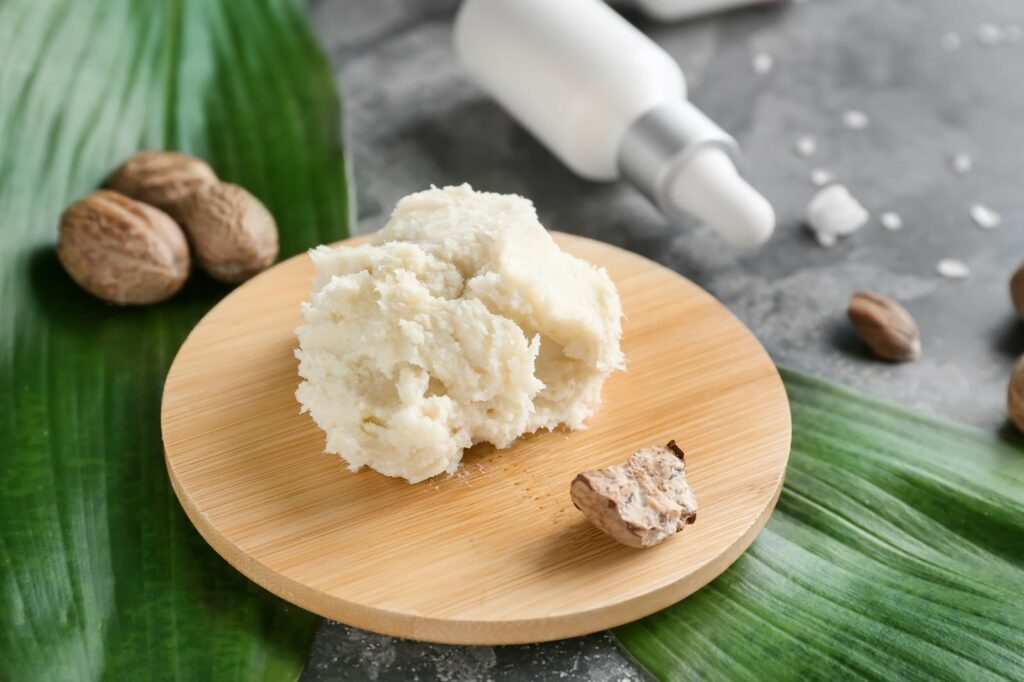
How Is Shea Butter Made?
The process of making shea butter involves a series of traditional methods that have been passed down through generations to extract the valuable fats from shea nuts.
First, the shea nuts are boiled to soften the outer shells. Once softened, the nuts are extracted from the shells by hand, a meticulous process that requires patience and skill.
The next step involves beating the roasted seeds with water to release the fats contained within. This process is crucial for separating the shea butter from the rest of the nut.
After the fats have been released, they’re boiled, skimmed, and cooled to create the final product – shea butter. This rich and creamy substance is then ready to be used in a variety of skincare and hair care products.
The entire process of making shea butter requires careful attention to detail and a deep understanding of the nut’s properties. It’s a labor-intensive process that showcases the expertise and dedication of those involved in producing this valuable natural ingredient.
Does Shea Butter Go Bad? How Long Shea Butter Last? (Expiration And Shelf Life)
When stored properly in suitable conditions, shea butter can last for a significant amount of time.
While shea butter doesn’t have a strict expiration date, it can go bad if not stored correctly.
Typically, shea butter can maintain its quality and effectiveness for 1-2 years or even longer when stored in a cool, dark place away from direct sunlight and extreme temperatures.
Proper storage is key to preserving the longevity of shea butter.
Where To Buy Vegan Shea Butter
If you’re looking to buy vegan shea butter, there are several reliable online retailers and health food stores where you can find a diverse range of options to suit your needs.
Online platforms like Amazon and Thrive Market offer a variety of plant-based shea butter products. These retailers provide convenience and a wide selection, making it easy for you to explore different grades and types of vegan shea butter to incorporate into your skincare routine.
You can purchase them directly from Amazon here:
In addition to online options, health food stores like Whole Foods and Sprouts are great places to find vegan shea butter. These stores often carry a selection of high-quality, ethically sourced shea butter products that align with your vegan lifestyle.
Conclusion
In conclusion, shea butter is vegan-friendly due to its plant-based origin and natural composition. Its versatility and health benefits make it a popular choice among conscious consumers.
Whether used in skincare products or culinary creations, shea butter offers a plethora of advantages for both personal care and well-being. With its long shelf life and easy accessibility, vegan shea butter is a must-have staple for those looking to incorporate natural, cruelty-free products into their daily routine.
Show sources ⌄
Lin TK, Zhong L, Santiago JL. Anti-Inflammatory and Skin Barrier Repair Effects of Topical Application of Some Plant Oils. Int J Mol Sci. 2017 Dec 27;19(1):70. doi: 10.3390/ijms19010070. PMID: 29280987; PMCID: PMC5796020.
